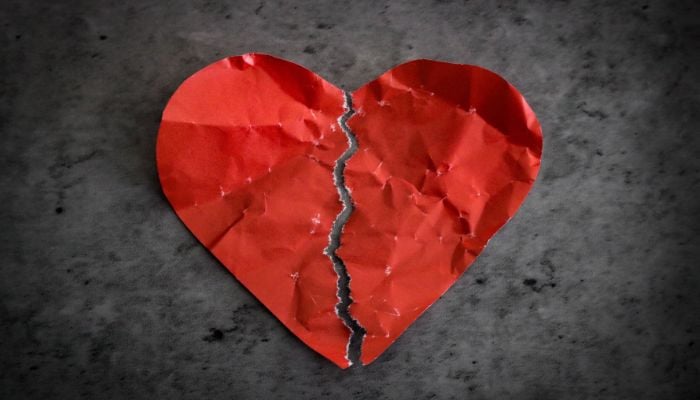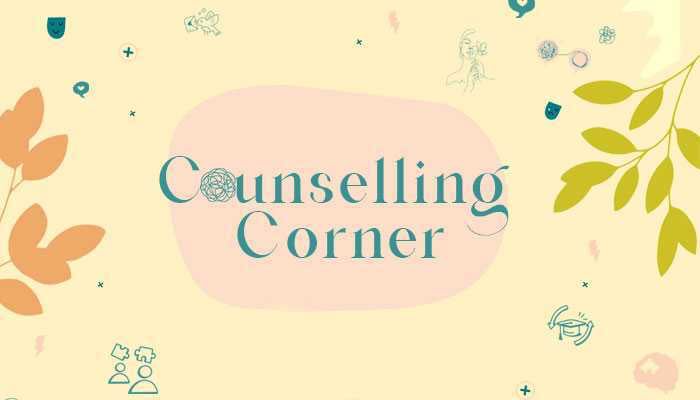'Will I ever get over a years-long heartbreak?'
"While the feelings are no longer as strong as they were years ago, they make a comeback all of a sudden," says a heartbroken woman
July 16, 2025
Hi Haya,
I'm unable to get over a heartbreak. It's been years and it was unrequited love, but the pain it left in my heart is something I'm still struggling to get over with. I'm a grown woman now and to be obsessed with the idea of someone, who probably never even knew about my feelings, is embarrassing.
I was naive and fell for the charm, but it took me a long time to understand that some people have the same attitude towards almost everyone around them. I now feel extremely stupid to have emotionally invested myself towards this person years ago and am still struggling to forgo the idea of what could have been if only I had expressed my feelings.
While the feelings are no longer as strong as they were years ago, they make a comeback all of a sudden, triggering the pain. Will I ever get over it?
— A heartbroken woman

Dear heartbroken,
Thank you for sharing something so deeply personal. I hear the pain in your words. Rest assured, you are not alone in this experience.
There are heartaches we tuck away, only for them to resurface years later, as sharp as they once were. Unrequited love is one of those quiet, lingering aches — the kind you carry with you even after life has moved on. It can feel confusing and shameful, but I want to point out that it is not a sign of immaturity or weakness. It’s a human emotional pattern tied to unmet needs and unresolved narratives within us.
Many women — grown, self-aware, accomplished — share this experience. They feel embarrassed by their inability to let go of a love that was never fully theirs to begin with. Sometimes we can’t help who we fall in love with. We don’t always know what people’s intentions for us are, and it takes us time to realize. We fall for their charm, their attention, or the way they made us feel seen for a brief moment. By the time we realize that their warmth wasn’t as exclusive as we thought, our hearts have already invested. And then we carry that story around: the one where we were almost loved, the one where maybe, if we had done or said something differently, things could have been different.
You mentioned the painful loop of "what if". Those loops often reflect deeper themes: invisibility, feeling not enough, or missing closeness in life. In reality, they keep us stuck in cycles of regret and the past. It doesn’t change what was; it only clouds what is. And sometimes, it isn’t even about the person anymore. It’s about the version of yourself that believed, that hoped, that longed to be seen, chosen, and valued.
So how do we move on from these invisible, unresolved heartbreaks?
First, understand that our triggers are not here to punish us. Triggers are our biggest teachers. They’re signals — invitations to explore within. When they show up, pause and gently ask yourself: “What is this feeling trying to tell me?" "What needs my care and attention right now?"
Maybe you’re feeling especially lonely, undervalued, or unseen in some area of your life right now. The ache is signalling a present need going unmet. Ask yourself: What was I really attached to? Was it the person, or was it the feeling they evoked in me — the feeling of being wanted, chosen? Often, it’s the latter. And that feeling can be cultivated in healthier, mutual ways.
I also sense you’ve been hard on yourself. By constantly shaming yourself, you keep the pain alive. You may find yourself living in what-ifs rather than focusing on what is. You didn’t express your feelings then, and that’s okay — you did the best you could with the awareness you had at that time. Beating yourself up for it today only further sabotages your own healing process and doesn’t allow you to move fully forward with your life. Instead, what would it be like for you to acknowledge those parts of yourself instead? When that ache resurfaces, pause and gently say to yourself, "Ah, this again. I see you. I know where you come from". Offer yourself the same self-compassion and self-forgiveness you would to another.
This small act of acknowledgment will help break the cycle of shame and self-criticism. Rather than judging yourself for having the feeling, make space for it to exist — and eventually soften. It’s calling for your attention.
Another important step is reframing your story. Remind yourself you were brave enough to feel deeply, instead of telling yourself you wasted your time and energy loving someone who didn’t feel the same way. The love you had was a reflection of your heart. Acknowledge and honour those parts of yourself rather than criticising and rejecting them. This shift in language can change how you carry the memory.
I also recommend writing things down. Journal about what this experience taught you. What needs of yours were being met through that attachment? What purpose does revisiting that pain and going down that loop serve you today? In what ways does it hold you back? What patterns from your past does it reflect? Once you identify the underlying themes, you can start finding new, healthier ways to meet those needs — through friendships, new experiences, or therapy.
Letting go and moving forward isn’t about erasing the memory. It means reaching a place where that memory no longer holds power over your present choices or your sense of self-worth. Where you can remember without hurting. Where you can look back with compassion for yourself rather than regret.
Heartbreak — even the quiet, hidden kind — can be a doorway to growth. It invites us to reflect, to recenter, and to rewrite the story we tell ourselves. The person you once loved may not have chosen you, but you have the power now to choose yourself.
Let this be your reminder: you deserve love that is mutual, healthy, and whole. And you are strong enough to make space for it.
Best wishes,
Haya

Haya Malik is a psychotherapist, Neuro-Linguistic Programming (NLP) practitioner, corporate well-being strategist and trainer with expertise in creating organisational cultures focused on well-being and raising awareness around mental health.
Send her your questions to [email protected]
Note: The advice and opinions above are those of the author and specific to the query. We strongly recommend our readers consult relevant experts or professionals for personalised advice and solutions. The author and Geo.tv do not assume any responsibility for the consequences of actions taken based on the information provided herein. All published pieces are subject to editing to enhance grammar and clarity.













